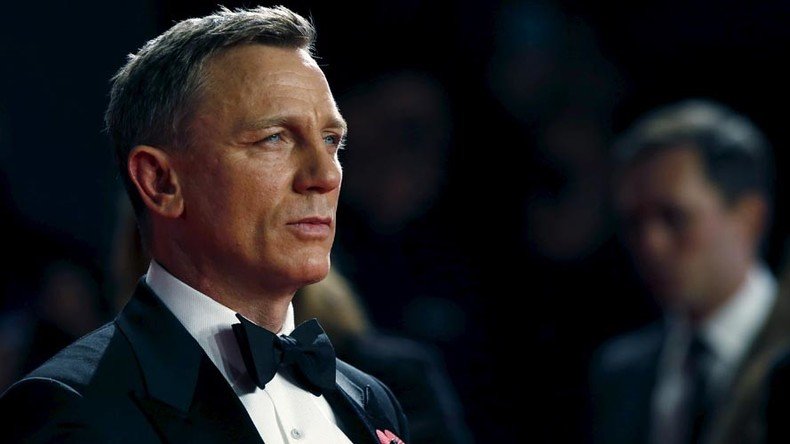James Bond delusion: Britain’s military power an illusion made from myth, says scholar

Britain ignores its dependence on stronger allies and the dilapidated state of its “clapped out” armed forces in favor of a deluded 007 self-image, which came to the fore during the Brexit referendum, according to a leading scholar.
Writing for the Democratic Audit UK website on Tuesday, University of Warwick academic Dr. Mike Finn gave a savage critique of the James Bond self-delusion which helped fuel the EU referendum ‘Leave’ campaign.
Brexit bluster
Finn argued the campaign led by the likes of Michael Gove and Boris Johnson – “who consider themselves to be historians of sorts, articulating Britain’s place in the world in historical terms” – was based on contrived post-war ideas about “British pluck” and a myth of “specialism.”
Their heady “visions of Britain’s past” are “rooted in myth, not history, and this has implications for the decision they are asking us to take,” Finn said.
“Standing alone has been the exception, rather than the norm. Apart from those heroic months in 1940 and early 1941, Britain has faced the world – in war and peace – with allies.”
Since the Harold Macmillan government’s courting of the US since the 1950s – a period in which the UK self-importantly tried to position itself as a sagacious ancient power ready to guide an emergent America – the UK has allowed itself to buy into its own spin.
“This attempt at defining a ‘special relationship’ owed much to British culture and snobbery; Americans might have the money and the power, but they didn’t have the class or the guile. On those scores, nobody did it better than Britain,” he said of the strategy.
Bond self-delusion
In popular culture, says Finn, this “escapism” was represented by Britain’s most famous fictional cold warrior: James Bond 007.
“Bond was the living embodiment of Britain’s self-delusion, superior in every way to his American counterparts,” he argued.
“Successive generations of Britons internalized the Bond mythology; Britain might be outnumbered and outgunned, but in the end ‘nobody does it better’.”
‘Best in world’?
This is nowhere better demonstrated than in Michael Gove’s attitudes towards the UK’s Armed Forces, Finn claims, arguing that the British military, far from being “the best in the world,” is dilapidated and of debatable utility.
The fantasy of the “supposedly-supernatural powers” of units like the SAS “are invoked by the tabloids, politicians and pub pundits alike for any crisis Britain may wish to involve itself in,” said Finn.
Likewise the Royal Air Force (RAF) – “itself part of the ‘British specialism’ narrative” – is put on a pedestal due to the “undeniable heroism against superior numbers in the summer of 1940” yet now “operates clapped-out ancient Tornado airframes.”
He cites one RAF source who, before the December 2015 vote on bombing Islamic State (IS, formerly ISIS/ISIL) in Syria, claimed “operations from Cyprus were being conducted with ‘broken jets and tired … fed-up people.’”
According to Finn, Britain’s heroic mythology also tends to obscure the fact “the two conflicts of Iraq and Afghanistan, followed by subsequent defense cuts, have dealt huge blows to the army’s ability to operate autonomously.”
British sea power fares little better given “today’s Royal Navy has no aircraft carriers and it is questionable whether it can really consider itself a ‘bluewater navy’ given its lack of organic air support and dwindling numbers of escort vessels.”
“At least in part this is due to [Conservative-Liberal Democrat] coalition cuts which Gove was a party to,” he adds.
Facing reality
Far from being an independent or specialist power, Finn points out that British military planning “has increasingly moved towards models of co-dependency on allies for resources the UK simply cannot provide. But whether one takes a positive or negative view of such dependency, it is the reality.
“For decades, the EU has been an easy target to pass the buck for British politicians keen to abdicate responsibility for their own choices,” he argues of the Brexit vote, adding that the European Union had been too often framed as a “sinister continental conspiracy when it was in fact an elective choice of successive British governments.”
“For several generations, Britain’s politicians told themselves – and their publics – comforting lies about Britain’s place in the world.”
“Now, for reasons of a petty party squabble, the British public is expected to sort that out for them. The outcome of any Brexit, however, will more than likely be an ever-diminishing return on Britain’s post-war fantasies,” Finn concluded.














